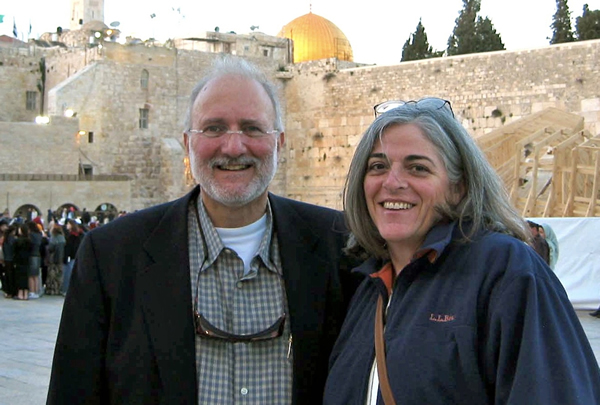
U.S. aid contractor Alan Gross and his wife Judy in a file photo from 2005. (Photo: Reuters/family photograph)
Alan Gross could’ve been your neighbor. An American baby boomer who loved to play the mandolin and snack on sunflower seeds, Gross had a big heart. He chose a job that took him all over the world to help equip those struggling under political and economic oppression.
Sadly, Alan Gross is not your neighbor. He is a prisoner of a repressive, freedom-denying Cuban regime.
Gross sits in jail today because the Castro regime persistently denies its people basic political freedoms, including the freedom to access uncensored, unfiltered news and opinions. The U.N. acknowledged this right over 60 years ago.
The Obama Administration protested Gross’s imprisonment from the start and claims that better relations with Cuba hinge on the American’s release. Yet Havana insists on a prisoner swap, using Gross as a bargaining chip to win the release of the Cuban Five—a group of Cubans convicted in Miami for acts of espionage.
On the surface, Cuba looks to be offering a reasonable deal: You give us our spies and we’ll give you your spy. But a little digging proves that Cuba’s offer is completely unacceptable.
First of all, Gross is not a spy. Cuba even admits that it does “not consider Alan Gross a spy.” However, Cuba does admit that the Cuban Five were spies. Moreover, Gross is imprisoned for, at the worst, providing a small group of Cubans with uncensored Internet access. In comparison, the Cuban Five were convicted for using false identification to infiltrate U.S. airports and naval air stations. Once inside, they sent reports back to Havana detailing aircraft and military personnel movements and describing the facilities’ layout and structures.
The two activities are hardly comparable.
The Heritage Foundation has written on the case of Gross before. On this third anniversary of his imprisonment, Americans shouldn’t forget the true injustice of Gross’s situation.
Oddly, the longer Gross is in prison, the more talk is made in favor of the U.S. being flexible with Cuba. After all, some say, Gross did violate Cuban laws, and Cuba has offered to negotiate for his release. To buy into this argument, though, is to forget who is at fault in the case.
Despite pressure to cut a deal with Cuba, the Obama Administration is right to hold its ground against Cuba. Three years into his unjust imprisonment, Gross, along with millions of Cubans, remains a victim of a repressive, totalitarian Castro regime that has held the island in its iron grip for more than half a century.
No one deserves 15 years in prison for helping to give Cubans freedoms that are considered universal. If the Castro regime wishes to gain the respect of the international community and earn a valuable position on the world stage, it should free Gross immediately and without further chicanery.
Sadly, honor and respect are rarely the objectives of totalitarian governments, and Gross will likely remain the victim of an obstinate, archaic Communist regime.
Kathleen Donnelly is currently a member of the Young Leaders Program at The Heritage Foundation. For more information on interning at Heritage, please visit http://www.heritage.org/about/departments/ylp.cfm.